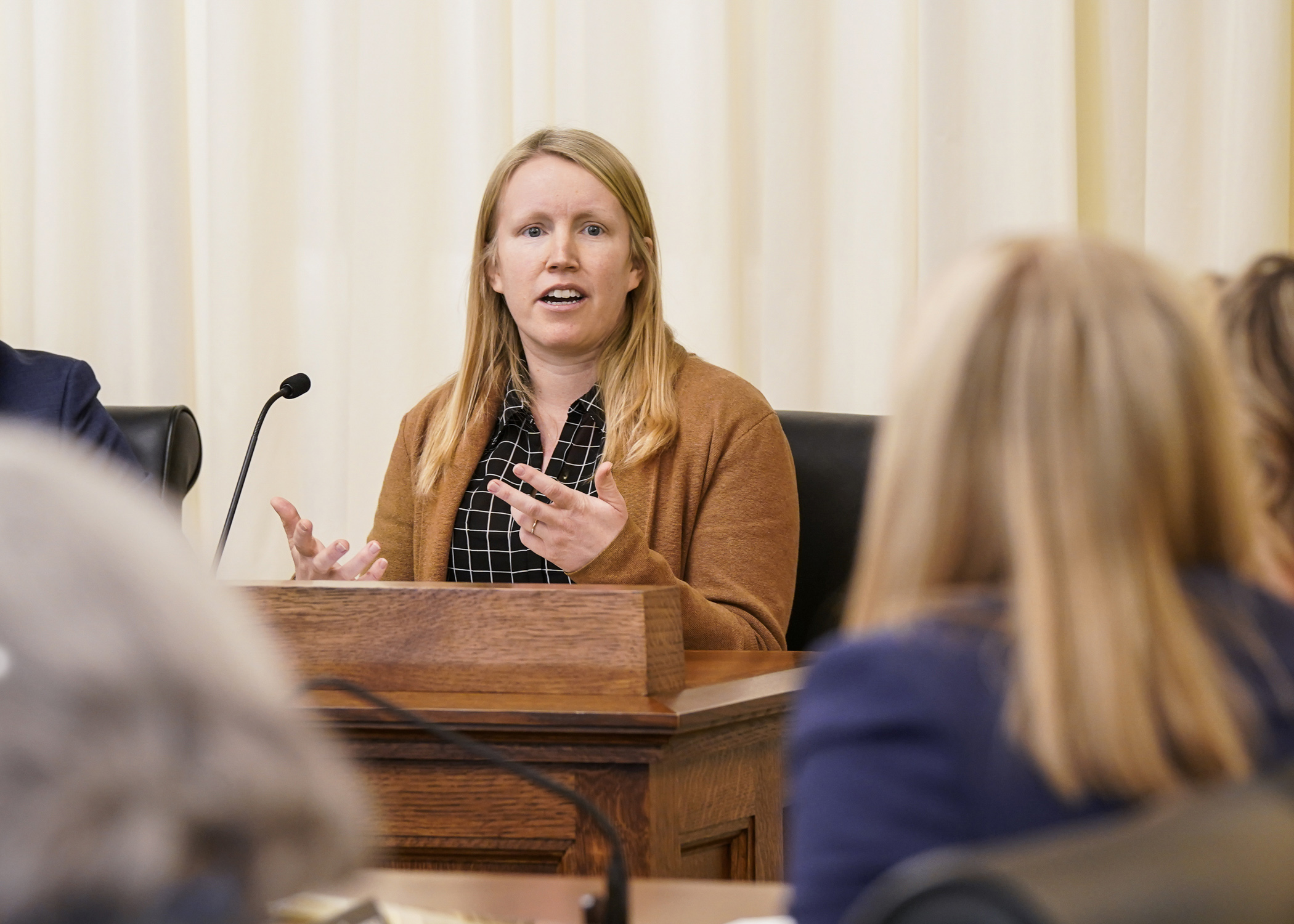Special education funding gap would disappear under massive spending proposal

Seventeen percent of Minnesota’s students qualify as needing special education. A federal mandate has been in place since the 1970s to ensure students with special needs are given equal access to education. However, state and federal funds consistently fail to fully fund this educational area, placing a large burden on local school districts.
Rep. Dan Wolgamott (DFL-St. Cloud), sponsor of HF18, intends the state to finally step up and eliminate this chronic funding gap with more than $3 billion over the next four fiscal years.
“This is the right thing to do. These services are critical to our students with special needs to help them reach their fullest potential,” Wolgamott said. “But, unfortunately, Minnesota has never fully funded this mandate.”
The House Education Finance Committee laid the proposal over, as amended, Tuesday for possible inclusion in an omnibus bill.
Every school district in Minnesota currently has a shortfall between special education costs and revenues received from the state and federal government. This shortfall is known as the special education cross subsidy. Covering the cross subsidy forces districts to consistently dip into their general education funds.
Wolgamott characterized this as ”robbing Peter to pay Paul” as it essentially pits the funding needs of special education students against those of the wider student population.
His proposal is thus a simple one – starting in fiscal year 2024, instead of covering a mere 6.43% of this funding gap, the state would reimburse 100% of the adjusted net cross subsidy for all school districts.
Per a fiscal note, this would amount to over $1.65 billion in the coming biennium, and over $1.92 billion in the 2026-27 biennium.
Wolgamott did not shy away from admitting the bill is an expensive proposal but argued it is not right that costs are being passed on to local school districts. The state should pick up the tab, he said, noting the shortfall has grown year over year and is projected to top $750 million statewide for fiscal year 2024.
The bill contrasts sharply with Gov. Tim Walz’s budget proposal, which aims to only close the funding gap by 50%, providing $772.6 million in the next biennium and $849.1 million in the 2026-27 biennium.
While in agreement with the premise of the bill, Rep. Nolan West (R-Blaine) expressed frustration that while the federal government has mandated special education nationwide, it has failed to live up to its promised funding commitment for 50 years and that Minnesota is now being compelled to dip into the surplus to make up the difference.
Related Articles
Search Session Daily
Advanced Search OptionsPriority Dailies
Minnesota's budget outlook worsens in both near, long term
By Rob Hubbard It looks as if those calling for less state spending could get their wish, judging from Thursday’s release of the February 2025 Budget and Economic Forecast.
A state su...
It looks as if those calling for less state spending could get their wish, judging from Thursday’s release of the February 2025 Budget and Economic Forecast.
A state su...
Minnesota’s projected budget surplus balloons to $3.7 billion, but fiscal pressure still looms
By Rob Hubbard Just as Minnesota has experienced a warmer winter than usual, so has the state’s budget outlook warmed over the past few months.
On Thursday, Minnesota Management and Budget...
Just as Minnesota has experienced a warmer winter than usual, so has the state’s budget outlook warmed over the past few months.
On Thursday, Minnesota Management and Budget...